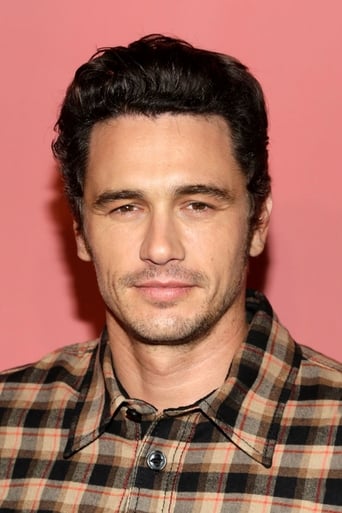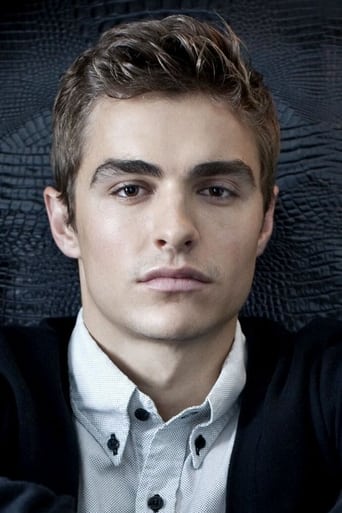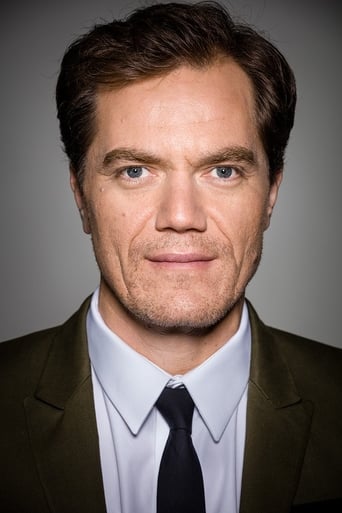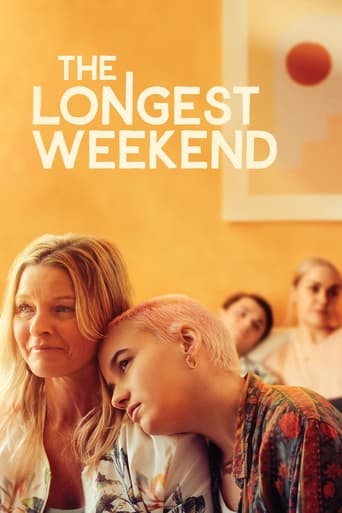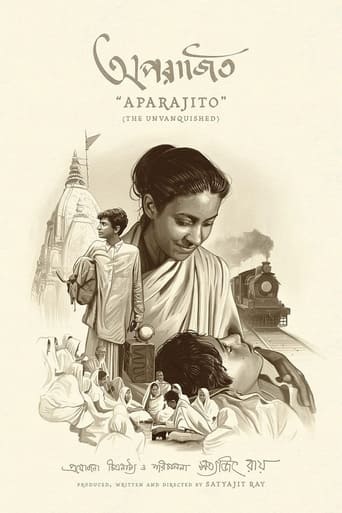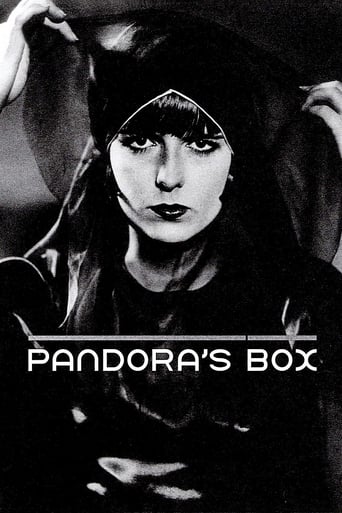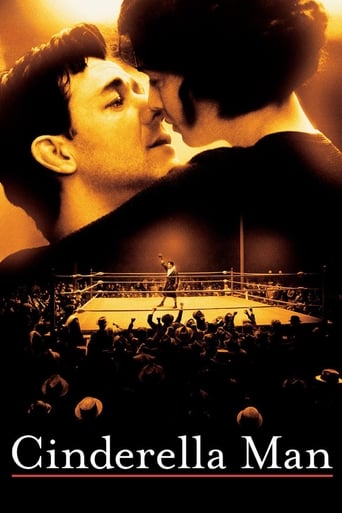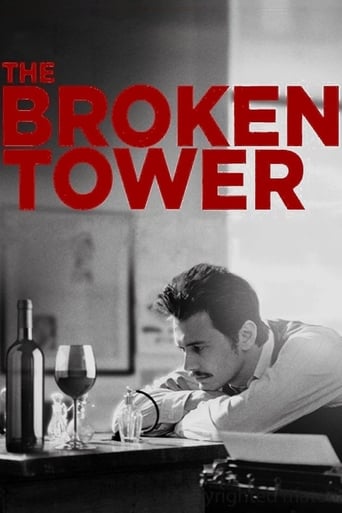
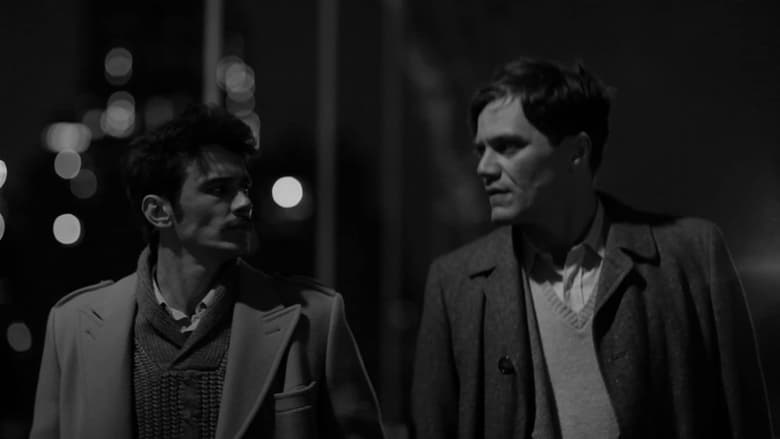
The Broken Tower (2012)
Docudrama about American poet Hart Crane, who committed suicide in April 1932 at the age of 32 by jumping off the steamship SS Orizaba.
Watch Trailer
Cast


Similar titles
Reviews
Instant Favorite.
It's easily one of the freshest, sharpest and most enjoyable films of this year.
It is a whirlwind of delight --- attractive actors, stunning couture, spectacular sets and outrageous parties.
Watching it is like watching the spectacle of a class clown at their best: you laugh at their jokes, instigate their defiance, and "ooooh" when they get in trouble.
WARNING - CONTAINS SPOILERS This film fails on so many levels, it is hard to decide what is the worst thing about it. For one thing, the pace is maddeningly slow, and way too much camera time is spent on the back of Franco's head, or of him walking up endless flights of stairs. The incessant, long blackscreen segments are excruciatingly boring and add a further drag to the film's pace. Dialog is mostly absent, save for over-long recitals of Crane's poems by Franco, who becomes nothing more than a talking head for minutes at a time. Continuity is spotty, at best. At the film's conclusion, one knows nothing more about Crane than he knew before viewing it. I realize this was a student thesis of Franco's, but the entire project is boring, puerile, and without merit.
THE BROKEN TOWER will likely never be on the list of best films made, so why award it five stars? Because this very fine art piece is the result of the devotion of James Franco to his craft. He worked directly with Boston College professor Paul Mariani, the author of a half dozen volumes of poetry, as well as several biographies of 20th-century American poets, including William Carlos Williams, John Berryman, and Robert Lowell: Franco based THE BROKEN TOWER on Mariani's similarly titled 2000 biography of Crane.The subject of the film is the life and creative genius of Hart Crane, (July 21, 1899 - April 27, 1932) an American poet who found both inspiration and provocation in the poetry of T. S. Eliot, Crane wrote modernist poetry that is difficult, highly stylized, and very ambitious in its scope. In his most ambitious work, The Bridge, Crane sought to write an epic poem in the vein of The Waste Land that expressed something more sincere and optimistic than the ironic despair that Crane found in Eliot's poetry. In the years following his suicide at the age of 32, Crane has come to be seen as one of the most influential poets of his generation.James Franco wrote the screenplay based on book by Paul Mariani, directed and edited the film and acted the main role of Hart Crane. Crane was a nearly disconsolate man who refused to follow his wealthy father's business, longing instead to be a poet. Born in Ohio he traveled to New York (the place he always considered home), to Cuba, and to Paris searching for his poetic voice. He was a gay man in an era when his lifestyle was always under threat, he had a lover (Vince Jolivette) early on in an affair that was filled with passion, and in his travels he seemed to find his true love in Emile (Michael Shannon) that endured the manic highs and depressive, death-haunted lows that befell this self -destructive visionary poet. He attempted suicide at least once and finally ended his life in a successful suicide at the young age of 32.Franco breathes life into Hart Crane, offering more understanding of this enigmatic genius than we have ever been afforded. In making the film Franco uses his younger brother Dave Franco to depict the young Hart and selects his small cast wisely. The film is completely in black and white and is in the format of 'Voyages' - each voyage takes us through a distinct part of Hart's life: his gay loves, his poetry readings, his forays to Cuba and to Paris and his lonely hours of sitting before an old typewriter where he created the major epics of poetry that remain some of the finest ever written by an American poet.The film is choppy, not unlike the manner in which Hart's mind worked in bits and pieces, always immersed in thoughts of the sea, the labor of common man, of the Brooklyn Bridge which would play the major role in his most famous epic poem THE BRIDGE, and of the fellow artists whose work he so admired. There is a strange musical score (the work of Neil Benezra) which is long on choral chanting, and a quality of gritty cinematography achieved by Christiana Vorn. The technique of the making of this film matches the vision of James Franco in continuing to visit the lives of isolated geniuses. The dialogue, what little there is, is Crane's poetry as spoken by Franco.For many this film will seem self-indulgent on Franco's part. And perhaps it partially is. But the flavor of this gay American poet of the 1920s and the reflections of America at that time ring true. THE BROKEN TOWER is not a biopic of Hart Crane. It is an elegy. Grady Harp
***Alert: some spoilers contained herein - but if one knows the life of Crane then these are not so revealing).*** Such is a healthy attitude for a despondent artist. It is one of the few bright spot seen shimmering from Crane in this biopic. James Franco takes Hart Crane's words - poetry and letters - and uses them as a backdrop for the evolution of a writer of promise cut down by his own wretched soul. At least that is how Crane comes off.Before I watched this flick I re-acquainted myself with Crane's verse; then I kept his book at hand during the film - which helped me keep interested in the movie. Franco manages to take the best of Crane - his poetry - and make it as bland as boiled chicken. There is one scene with Crane reading his work - rather than infuse the passion seen elsewhere in the film emanating from Crane - Franco chooses to recite the poems with no heart. The crowd's reaction to the second of the poems ('For the Marriage of Faustus and Helen') is understandable given the content and how Franco drones as Crane. The man's poetry needs to be read and sifted through several times before it feel accessible in some small way and Francdo blew a great opportunity to get his fans - who might not otherwise read any verse - interested in poetry. Granted, the rest of the film has me wanting to delve deeper into Crane's bio and his work. But I am most likely an anomaly in this respect, as I, too, am a poet and a teacher of literature. Still, with a positive attitude toward what is shown and read of Crane someone could become entranced with his work and also want to read more of it.As for the filmmaking aspect, there are many issues there: hand-held cameras make for unsteady viewing, seemingly random pick-up shots are meant to set scenes, and a windscreen was sorely needed for the microphone used to collect audio in several shots. An interesting approach is used to show the leap from younger Crane to the (slightly) older Crane played by Franco - using the aforementioned sporadic shots. It is filmed almost entirely in black and white (which is what one might expect from this sort of film, artsy and so-forth). Colour does work its way in during a trip to the Notre Dame Cathedral in Paris - but it had me screaming for the return to B&W since the cameras employed could not handle the natural interior lighting of the church, therefore showing the limitations of the production. Perhaps Franco thought this approach would show the beauty of the place and highlight the impact it had on Crane; however, the camera's constant trying to adjust its 'eye' to the setting took me out of the film.The story is unfolded through a series of "Voyages" (fitting, as the film ends with an excerpt from Crane's so-named poem and that it is on a sea-vessel that the poet chose to end his life). Title cards offer the subject in each 'Voyage' and the section reflects this accordingly: which helps one follow Crane's overall voyage.Franco manages to show the tortured artist trying to support himself and create poetry - but is ultimately unable to do both. Grants and fellowships are the godsend for any artist to contribute his verse to the world and that Crane enjoys both and is able to write is evident. Malaise works its way into his psyche and builds along the way to show the viewer what led to Crane's demise.The much-hyped oral pleasure scene seems unnecessary - yes, Crane was gay. There were better ways to make this known (as Franco shows in other parts of the movie) without having to resort to such a cheap ploy for shock value.There is a scene where Crane - frustrated by finding out his financial situation is hopeless, vents his feelings in his room; while I get the emotion, Franco falls short in expressing the way Crane would have felt. This stems, perhaps, in Franco himself never feeling denied anything he truly wanted so he is unable to display the rage a truly tormented artist would vent when going from simmering anger to a boiling cauldron of virulence in an instant.Michael Shannon appears in a minor, yet major role, but his character hardly speaks and comes, then goes, and comes then goes again so quickly that such a power of talent (he alone propelled 'The Runaways' forward and made that flick worth watching) never gets a chance to make an impact.Overall, the movie is ambitious and Franco does a righteous job of adapting the source material employed (Crane's poetry and Paul Mariani's 'The Broken Tower: The Life of Hart Crane') into a watchable slice of celluloid. The build-up of a creative genius torn apart by knowing his own abilities are wrecked by external factors is shown rather well.(Full Disclosure: the above is the exact same review I posted on iTunes for this film)
Just attended the premier of The Broken Tower at the LA Film Festival and, once again, James Franco makes brave choices and produces a beautiful film. The camera work, editing, score, and the actors' performances, sustain a sometimes difficult story with elegance, honesty, and passion.Set against the backdrop of 1920's New York, Paris, Cuba, and Mexico, The Broken Tower succeeds in merging two disparate art forms, film and poetry, to propel the narrative. There's also a lot of silence in this film where we are allowed to see Crane's world as through his eyes. Elegaic sequences are punctuated with cuts to black and the spare and subtle soundtrack perfectly matches the storytelling.I admit to knowing nothing about Hart Crane before tonight's screening but I left wanting to read his poems and letters myself.Thank you, Mr. Franco, wlm


